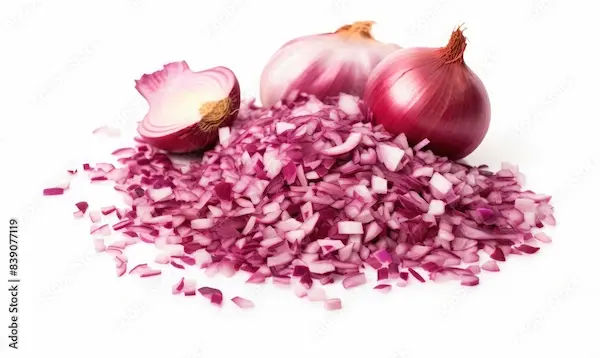Brinjal Benefits
Discover the top health benefits of brinjal (eggplant), from supporting heart health and digestion to managing blood sugar and boosting immunity. Learn how to add it to your diet today!

Written by Dr.Sonia Bhatt
Last updated on 13th Jan, 2026

Introduction
Brinjal, also known as eggplant or aubergine, is a versatile and nutritious vegetable commonly used in various cuisines worldwide. While it’s a staple in many Indian dishes, its health benefits often go unnoticed. If you’ve ever wondered whether brinjal is good for you, the answer is a resounding yes! This humble vegetable is packed with nutrients that can support your overall well-being.
This article will explore the many health benefits of brinjal, how it can improve your health, and some easy ways to include it in your diet.
Nutritional Value of Brinjal
Brinjal is low in calories but rich in essential vitamins, minerals, and antioxidants. Here’s a quick look at what a 100-gram serving of brinjal contains:
Calories: 25 kcal
Fibrer: 3 grams
Vitamin C: 3% of the daily requirement
Vitamin K: 4% of the daily requirement
Folate (Vitamin B9): 5% of the daily requirement
Potassium: 5% of the daily requirement
Manganese: 10% of the daily requirement
Antioxidants: Nasunin, chlorogenic acid, and flavonoids
With such a nutrient-dense profile, brinjal can be a great addition to a balanced diet.
Consult Top Specialists for Personalised Usage Tips
Top Health Benefits of Brinjal
Below are some of its most impressive health benefits:
1. Supports Heart Health
Brinjal contains fibre, potassium, and antioxidants that help maintain heart health. The fibre helps reduce bad cholesterol (LDL), while potassium regulates blood pressure. The antioxidants, especially nasunin (found in the purple skin), protect blood vessels from damage and improve circulation.
2. Aids in Weight Management
Since brinjal is low in calories and high in fibre, it keeps you full for longer, reducing unnecessary snacking. Including it in meals can help with healthy weight loss without compromising on nutrition.
3. Helps Control Blood Sugar Levels
Brinjal has a low glycemic index (GI), meaning it doesn’t cause rapid spikes in blood sugar. The fibre content also slows down sugar absorption, making it a good choice for people with diabetes or those at risk.
4. Boosts Digestion
The high fibre content in brinjal promotes healthy digestion, prevents constipation, and supports gut health. It also helps maintain a balanced gut microbiome, which is essential for overall wellness.
5. Rich in Antioxidants for Immunity
Brinjal is packed with antioxidants like nasunin, chlorogenic acid, and flavonoids, which fight free radicals in the body. This helps reduce inflammation, strengthen immunity, and lower the risk of chronic diseases.
6. May Improve Brain Function
The antioxidants in brinjal, especially nasunin, protect brain cells from oxidative stress. Some studies suggest that regular consumption may help improve memory and cognitive function, reducing the risk of age-related mental decline.
7. Supports Bone Health
Brinjal contains small amounts of calcium, magnesium, and vitamin K, all of which contribute to stronger bones. Vitamin K, in particular, helps in calcium absorption and bone mineralisation.
8. May Help Prevent Cancer
The anthocyanins (pigments that give brinjal its purple colour) and other antioxidants have been linked to reduced cancer risk, particularly in preventing the growth of certain tumour cells.
How to Include Brinjal in Your Diet
Brinjal is incredibly versatile and can be cooked in various delicious ways:
Baingan Bharta – A smoky mashed brinjal dish with spices.
Stir-fried Brinjal – Sautéed with garlic, onions, and a dash of soy sauce.
Brinjal Curry – Cooked in a tangy tomato-based gravy.
Grilled or Roasted Brinjal – A healthy, low-calorie side dish.
Stuffed Brinjal (Bharwa Baingan) – Filled with spices and cooked to perfection.
Tip: To retain maximum nutrients, avoid deep-frying brinjal. Instead, opt for grilling, roasting, or sautéing with minimal oil.
Precautions
While brinjal is generally safe and healthy, some people should consume it with caution:
Kidney Stone Patients: Brinjal contains oxalates, which may contribute to kidney stones in susceptible individuals.
Allergies: Some people may experience mild allergies like itching or rashes.
Gastrointestinal Sensitivity: Excessive consumption may cause bloating or gas in some individuals.
If you have any concerns, consult a doctor before making significant dietary changes.
Final Thoughts
Brinjal is a nutrient-packed, low-calorie vegetable that offers numerous health benefits—from improving heart health to aiding digestion and boosting immunity. Including it in your diet can be a simple yet effective way to enhance your overall well-being.
If you have specific health conditions or dietary restrictions, it’s always best to talk to a nutritionist or doctor for personalised advice. Book a consultation with Apollo24|7’s nutritionists today!
Consult Top Dieticians
Consult Top Specialists for Personalised Usage Tips

Dr. S N C Vasundhara Padma
Dietician
16 Years • RD, ( P.hd )
Chinagadila
Apollo Hospitals Health City Unit, Chinagadila
(25+ Patients)

Ms. Kanika Narang
Dietician
12 Years • Msc. In Dietetics and Food Service management from Institute of Hotel Management, Catering and Nutrition. Bsc. In Home science from Institute of Home Economics, Delhi University,
Delhi
Apollo Hospitals Indraprastha, Delhi

Mr. Anke Raveendra
Dietician
11 Years • MSC (Food Sciences Nutrition and Dietetics), Trained in Diabetes Education
Kurnool
Medicover Hospitals, Kurnool

Ms. Merlin Annie Raj
Dietician
13 Years • M.sc Clinical nutrition and dietetics, RD
Hyderabad
Merlin Clinics, Hyderabad
(25+ Patients)

Ms. Sreeparna Dey Dhara Deb
Dietician
10 Years • DNHE
Bansdroni
Siddhita Healthcare., Bansdroni
Consult Top Dieticians

Dr. S N C Vasundhara Padma
Dietician
16 Years • RD, ( P.hd )
Chinagadila
Apollo Hospitals Health City Unit, Chinagadila
(25+ Patients)

Ms. Kanika Narang
Dietician
12 Years • Msc. In Dietetics and Food Service management from Institute of Hotel Management, Catering and Nutrition. Bsc. In Home science from Institute of Home Economics, Delhi University,
Delhi
Apollo Hospitals Indraprastha, Delhi

Mr. Anke Raveendra
Dietician
11 Years • MSC (Food Sciences Nutrition and Dietetics), Trained in Diabetes Education
Kurnool
Medicover Hospitals, Kurnool

Ms. Merlin Annie Raj
Dietician
13 Years • M.sc Clinical nutrition and dietetics, RD
Hyderabad
Merlin Clinics, Hyderabad
(25+ Patients)

Ms. Sreeparna Dey Dhara Deb
Dietician
10 Years • DNHE
Bansdroni
Siddhita Healthcare., Bansdroni




